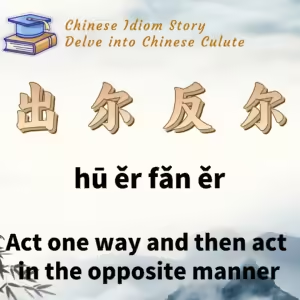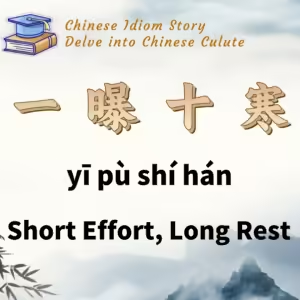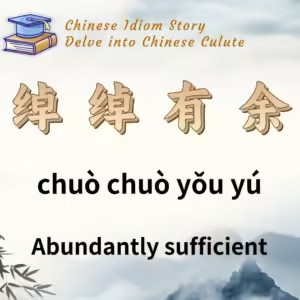
Chinese Idiom: 出尔反尔 (Chu Er Fan Er)
English Translation: Act one way and then act in the opposite manner
pīn yīn: chū ěr fǎn ěr
Idiom Meaning: Originally, this idiom referred to the idea that one’s own actions and attitudes would be reciprocated by others. In contemporary usage, it generally describes someone who is inconsistent, prone to changing their stance, or contradictory in their actions and words.
Historical Source: “Mencius” (《孟子》), specifically from the chapter “Liang Hui Wang II” (《梁惠王下》).
Idiom Story:
During the Warring States period, the state of Zou (邹国) and the state of Lu (鲁国) were neighboring states in present-day Shandong province. After a war between the two, Zou was defeated. The ruler of Zou, Duke Mu of Zou (邹穆公), expressed his frustration to the philosopher Mencius (孟子), lamenting that although his officials had died in the conflict, the common people had not come to their aid. He felt the people’s indifference was unacceptable, but he was also conflicted about how to handle the situation.
Mencius responded by pointing out that during times of war and famine, the Duke’s subjects had suffered greatly. The officials, meanwhile, had been neglectful and oppressive. Mencius quoted Confucius’s disciple Zengzi (曾子), who said: “戒之戒之! 出乎尔者,反乎尔者也” (“Be cautious! What you do to others will be done to you”). Mencius explained that if the Duke had treated his people poorly and ignored their suffering, it was natural for them to respond with indifference or even hostility in return. True leadership requires empathy and support for one’s people, which in turn fosters loyalty and cooperation from them.
Thus, Mencius’s explanation illustrated that the way the Duke treated his subjects was mirrored in their behavior towards him. Over time, the phrase from Zengzi became simplified and evolved into the idiom “出尔反尔” to describe actions or statements that are inconsistent or contradictory.






